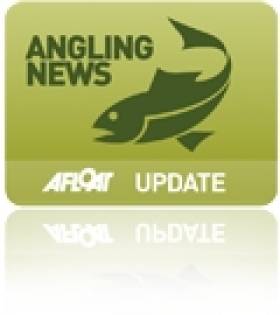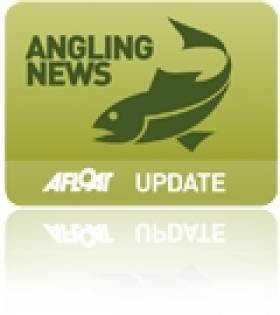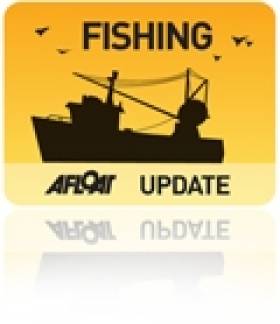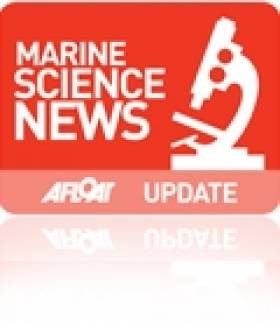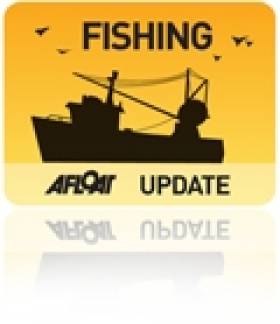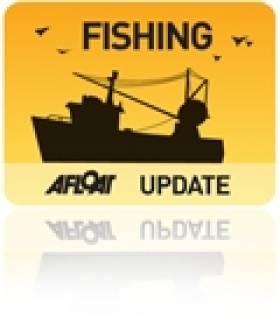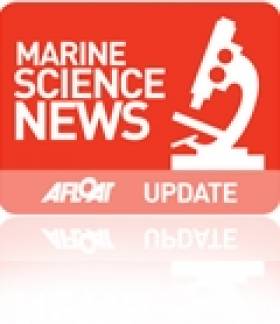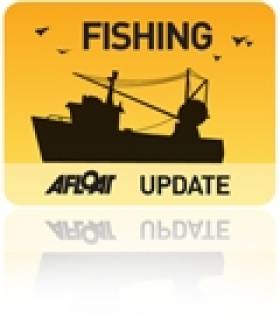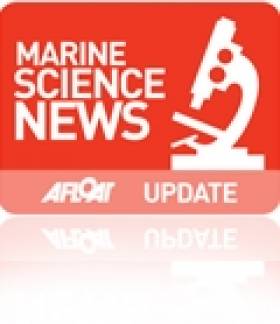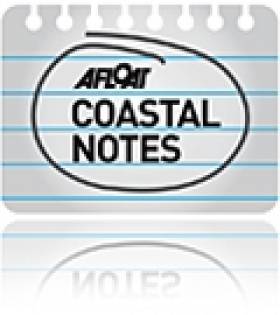Displaying items by tag: fisheries
New Funding For Fisheries Development Projects
#Angling - More than €400,000 has been made available to conserve and develop Ireland's inland fisheries resource by Minister of State Fergus O'Dowd, as he announced the opening of applications for the 2014 Salmon Conservation Fund(SCF), Midland Fisheries Fund (MFF) and new Co-op Funds.
The three Inland Fisheries Ireland (IFI) schemes facilitate clubs, fishery owners, commercial salmon fishers and other organisations to undertake works to improve habitat, stocks, access, invasive species management, angling, etc under its supervision and direction.
IFI says these works are important in maintaining and improving capacity within the inland fisheries resource which is estimated to contribute €755 million annually to the Irish economy.
Announcing the schemes, Minister O’ Dowd said: "The inland fisheries sector is fortunate to have such an engaged stakeholder cohort and I am pleased to be able to support IFI in making these funds available to them to allow for ground up, managed sustainable development.
"Unfortunately the Co-op Funds Scheme is only a once-off opportunity, while the other funds will have to be reviewed on an annual basis.
"I encourage all those interested in fisheries to investigate the possibilities under the various schemes to conserve, develop and promote the resources in their care for the betterment of angling, the inland fisheries resource itself and Ireland's economy."
The new Co-op Funds, which will be available for 2014 only, comprise the various funds remitted to IFI on the dissolution of the Trout and Coarse Fish Development Societies. The funds will be distributed back to the regions from which they came. A total of €160,000 is available, with over €130,000 specifically for the old Southern Regional Fisheries Board area.
The Salmon Conservation Scheme is now seven years in existence and has allocated funding to 145 salmon projects all around Ireland. A total of €200,000 is available for distribution under the scheme in 2014.
The Midland Fisheries Fund, which ran as a pilot scheme in 2013, has seen nine projects undertaken in the midland area developing angling resources, supporting scientific research and conserving fisheries habitat. A further €50,000 is available under this scheme for 2014.
Inland Fisheries Bill to be Robust and Modern Legislation
#fisheries – The Government has issued a statement on the proposed new Inland Fisheries Bill. The Minister of State, Fergus O'Dowd, along with representatives from the Department of Communications Energy and Natural Resources (DCENR) and Inland Fisheries Ireland (IFI) recently briefed Oireachtas members on the comprehensive review of all extant fisheries legislation that is currently taking place.
This review is being undertaken with a view to formulating proposals for a new Inland Fisheries Bill. The aim of the proposed new Bill is to ensure that the sector is underpinned by a robust and modern legislative code.
The consultation process began last Spring when stakeholders were invited to submit their views on a range of policy objectives to be included in the new Bill. As part of this process Minister O'Dowd, DCENR and IFI attended a number of well attended public information meeting held throughout the country.
The Minister and officials from DCENR and IFI set out possible proposals that might be contained in the new draft Bill and invited all stakeholders to make submissions as regards proposals they would like to see included.
As part of the consultation process 70 submissions were received from interested stakeholders, a significant proportion of which recognised the need to fund the development of the sector.
The briefing for Oireachtas members was arranged to address concerns voiced in the public domain and on social media, specifically those centering around the proposed funding of the development of the angling sector.
It was made clear that no proposal relating to the possible introduction of a "rod licence" had been surfaced and that it is not intended to make such a proposal.
The Minister, DCENR and IFI welcome all proposals for developing the angling sector in Ireland and how this may be funded. In this regard, it is intended that further comprehensive stakeholder consultation will take place prior to any finalisation of the proposed Inland Fisheries Bill.
Please find attached a non-exhaustive Frequently Asked Questions (FAQ) document, which is to address the issues which have been raised publicly by stakeholders.
Refreshing the British Environment Agency's Fisheries Service
#fisheries – Following a recent meeting with the Environment Agency (EA) the Institute of Fisheries Management (IFM) has highlighted the importance of the agency employing a strong body of fisheries professionals. The institute says this will enable the agency to deliver its statutory duty to maintain, improve and develop the nation's freshwater and inshore fisheries and to meet the needs of fishing rod licence holders.
The meeting was one of several under the heading of 'Refresh' which the agency has held with stakeholders following a year-long review of its fisheries service.
The IFM is concerned that with a gradual loss over time of expertise, direction and managerial support, the EA's fisheries function is now inadequately resourced and lacks technical vigour and leadership.
"Healthy fisheries are a barometer of how we are interacting with the water environment and we applaud the agency for reviewing its fisheries service," said John Gregory, executive officer of the IFM.
"Clearly the agency's directors have recognised inherent problems in the fisheries function and are looking to improve it."
The IFM asks the Environment Agency:
1. To strengthen its commitment to fisheries in its 2015-2020 corporate plan so that it can maintain, improve and develop fisheries for all.
2. To strengthen its regional fisheries leadership.
3. To support a more robust programme of skills development for its fisheries professionals.
4. To ensure a strong service to rod licence holders particularly by investing in still waters, and
5. To ensure that wherever possible, fisheries management decisions are based on sound science.
Inland Fisheries Ireland Extends Research Partnership With UCD
#MarineScience - Inland Fisheries Ireland (IFI) and University College Dublin (UCD) jointly sealed a Memorandum of Understanding at UCD’s Ardmore House on Monday 7 October expressing their commitment to a continued rich and productive liaison in research.
Over the past 50 years, scientists from UCD and the fisheries service have worked in collaboration in producing research that has covered an extraordinary range of projects – from aquatic plant to macro-invertebrate and fish stock studies.
In recent years the boundaries have expanded even further with collaborative micro-satellite DNA studies of fish stocks being undertaken.
“With the current limited public purse, this agreement will ensure a greater degree of symbiosis between these two organisations resulting in increased productivity, avoidance of duplication and strategically focused research,” said Minister of State Fergus O’Dowd, who presented both bodies with commemorative plaques to mark the occasion.
“It is my hope that this academic research, when coupled with applied research and practical application, will serve to increase our understanding on the inland fisheries resource though the use of novel technologies like DNA, environmental DNA and the development of bio-controls.”
The minister went on to stress the importance of the MOU in providing graduates and postgraduate with exposure to applied science and an opportunity to contribute to our understanding of the freshwater resource and to support its management, conservation and protection.
IFI’s head of research Dr Cathal Gallagher said: “I am confident that the MOU signed here today will act as an impetus to move forward with future collaboration in development of research techniques and projects to support the conservation and development of the natural resource that is inland fisheries.
“I see a vital role for IFI in supporting the development and education of the next generation of scientists into whose hands the future of this resource will be placed and I wish to acknowledge the great work undertaken by those who have brought us to where we are today – management of fisheries on the basis of sound science.”
Dr Mary Kelly-Quinn of UCD’s School of Biology and Environmental Science added that the MOU “will provide great opportunity for collaborative research with an industry partner. Our students will benefit enormously from unrivalled training in applied research and interaction with senior scientists dealing with emerging issues in aquatic and fisheries science.
“More so than ever before we appreciate the importance of building linkages with industry to ensure that we produce graduates that are able to enter the workforce and contribute to economic recovery through sustainable use of our countries resources.
“Today’s announcement is a step towards a greater goal which sees the development of a Centre for Fisheries Research here in UCD with the support of IFI.”
#Fishing - The growing black market for coarse fish in eastern Europe is being blamed for an increase in illegal fishing on Ireland's inland waterways.
That's the situation according to the Sunday Independent, which also highlights the "major problem" of salmon poaching by "Irish criminals".
Last month Afloat.ie reported on the prosecution of two Lithuanian brothers who were fined for illegal coarse angling on Lough Derg.
And the Independent says a number of similar cases are due to be heard before Irish courts over the coming months.
Meanwhile, poaching of salmon is hitting the headlines across the country - from the south, where two men were recently prosecuted for illegal fishing of spawning salmon in Co Limerick, to the north, where intimidation of fisheries staff is reportedly a problem.
In better fisheries news, The Guardian says cod stocks in the North Sea could be in for a revival, after a survey by the Marine Stewardship Council and others suggested that effective management could soon see the species certified as 'sustainable'.
Irish Presidency Reforms EU Fisheries Policy
#fisheries – This morning the Irish Presidency delivered on one of its highest priorities as it secured agreement on the EU's new Common Fisheries Policy. Minister Coveney, in welcoming the agreement stated that "At the very beginning of Ireland's Presidency I set out an ambitious and demanding work programme, as I believed it was imperative that reform of our fisheries had to happen now. Having led months of intensive negotiations, I am delighted that we have now agreed on a policy which is practical, implementable and one which places sustainability firmly at its core. It is a policy which will provide for a vital, vibrant industry and healthy fishing stock long into the future".
The main achievements under the new Common Fisheries Policy will be as follows:
With the new policy we have to set quotas that fully respect scientific advice. This will lead to healthy fish stocks and higher quotas as fish stocks are managed at maximum sustainable yield levels. From an Irish perspective the so called "Hague Preferences" have been protected which give additional quotas to Ireland each year for critical traditional stocks around our coast such as cod, haddock and whiting.
Discarding of fish stocks will no longer be allowed. This ends the old policy which forced fishermen to waste food by discarding fish at sea. The new policy will result in higher quotas for our fishermen.
The new policy puts fishermen at the core of developing technical and conservation measures to protect juvenile fish and vulnerable fish species with a completely new regionalised decision making approach. This is a big change as up to now decision making was centralised in Brussels.
A commitment to develop and strengthen biologically sensitive areas, with spawning grounds and high populations of juvenile fish. This will protect and allow for
additional protections for the sensitive fishing grounds off the south and west coast of Ireland known as the "Irish Box".
Retains ownership of fish quotas as a public asset and removes the threat of privatisation of quotas and their concentration in large foreign companies. This will protect the family owned fishing vessels around our coast.
On ending discarding, Minister Coveney said "this complex element has been one of the most contentious and difficult to agree given the many different perspectives on how such a ban would work in practice. What we have agreed this morning is to deliver a new fishing policy which strives to help restore our fish stocks and protect the fishermen and communities which depend on fishing for their livelihoods."
The reform, when taken as a whole, delivers on not just a discards ban but also provides the means for new ways of sustainable fishing, a more transparent and competitive market, as well as empowering fishermen by giving them a central role in decision making for their fisheries.
The agreement was reached between the Irish Presidency, European Parliament and the European Commission and will now go to the Committee of Permanent Representatives for final approval.
Irish Marine Innovations Applauded By Euro Space Agency
#MarineScience - Irish companies and researchers have distinguished themselves by developing innovative maritime services using satellite derived data in areas as diverse as marine renewables, fisheries protection, aquaculture and tourism.
That was the message from Dr Volker Liebig, director of Earth observation programmes with the European Space Agency at the opening of a conference on 'Space Innovation - Powering Blue Growth' at the National Maritime College of Ireland in Cork last week.
Minister for Research and Innovation Sean Sherlock, who opened the two-day event, said: “There are over 40 Irish companies currently engaged in ESA programmes, many of which are directly addressing global challenges such as climate change, sea-level rise, maritime surveillance and marine environmental monitoring.
"This is a growing industry and one which will guarantee high-quality jobs for Irish people and benefit our economy into the future.”
The conference - jointly organised by the ESA, the European Commission (DG Maritime Affairs), Enterprise Ireland, University College Cork’s Coastal and Marine Research Centre, the Irish Coast Guard and the Irish Naval Service - focussed on the contribution of space to maritime policy implementation; showed how new scientific results and innovative services assist in achieving targets set by the Integrated Maritime Policy for the European Union (IMP); and assessed how the ESA space development activities and the IMP can contribute to economic growth in Europe.
Geoffrey O’Sullivan, representing Marine Institute CEO Dr Peter Heffernan, said that the conference "ably demonstrated that Space Remote Sensing had a very positive contribution to make towards developing our blue economy.”
Examples given included fisheries management (including illegal, unreported and unregulated fishing); environmental assessment; detection of oil spills and harmful algal blooms; site survey for offshore renewable energy and aquaculture platforms; search and rescue; and maritime domain awareness (MDA).
O'Sullivan added that the Conference "validated the SMARTOCEAN (ICT and the Sea) Strategy being promoted by the Marine Institute, in identifying clear opportunities for Irish researchers and SMEs to harness their significant ICT and marine research skills and drawing on 'Big Data' provided by satellite sensors to develop of range of new products, services and applications relevant to local and global markets.”
Closing the conference, Marine Minister Simon Coveney commented that “increasing maritime situational and domain awareness is paramount in promoting a more inclusive approach to maritime development in delivering both the EU Blue Growth Strategy (2012) and Ireland’s Integrated Marine Plan (Harnessing Our Ocean Wealth) launched in 2012.
"Space based systems,” he said, “are a key component of an integrated and sophisticated maritime surveillance network.”
#sfpa – The Sea-Fisheries Protection Authority (SFPA) will host a series of EU Fishery Control focussed meetings involving fishery control experts from the relevant authorities in various EU Member Sates, the European Commission Directorate- General for Maritime Affairs & Fisheries (DG MARE) and the European Fishery Control Agency (EFCA) from today, Tuesday, 16th April until Thursday, 18th of April, in Dublin. The overall objective of the meetings is to allow Member States to share information and best practice with a view to continued progress towards a 'level playing field' in fisheries control.
A number of topics will be discussed at the Fishery Control Expert group meeting including: how fishery product traceability is implemented in Member States to ensure that fisheries products can be traced back and checked throughout the supply chain, from net to plate; the gradation of seriousness of fishery non-compliances and the application of appropriate sanctions to license holders and masters as well as how the certification and verification of fishing vessel engine power is implemented in Member States.
On Wednesday 17th of April, an SFPA led initiative will seek to utilise the expertise of the groups visiting Dublin for an initial seminar and technical discussions on the regulatory framework of the discard ban commencing in January 2014. This should provide a useful forum for initial consideration of the practical implementation challenges for this policy initiative.
The European Fisheries Control Agency's agenda, again hosted by the SFPA, will be discussed on Thursday, 18th April, and this will focus particularly on the challenge of assessment and review of the costs and effectiveness of control and the enforcement of fisheries regulations.
Micheál O'Mahony, Board member with the SFPA said: "The Common Fisheries Policy brings compliance obligations on all fishers in EU waters and control obligations on all EU Member states. To achieve sustainable fisheries, a culture of compliance must exist throughout the fishing industry. These meetings will provide an excellent opportunity for key representatives from EU Member States and EU institutions to share valuable information on how to implement best practices in terms of fisheries control as well as the continued effective implementation of the rules of the Common Fisheries Policy. The SFPA wants to play our part in protecting the rich resources of fish around the coasts of Ireland for the benefit of responsible fishermen. We need to ensure that we and all our EU partners have the best systems in place so that illegal practices are prevented. The effective monitoring and control of fish stocks requires the close co-operation of Ireland with other Member States, DG MARE and EFCA. I am sure these meetings will help promote a level playing field of best practice amongst the participants. We look forward to a fruitful exchange of information and ideas on how we can best work together to protect the interests of legitimate fishermen."
Canadian Ambassador Boards RV Celtic Explorer at Galway Docks
#marine science – Irish and Canadian scientists join forces on a transatlantic survey onboard the Irish National Research Vessel, RV Celtic Explorer which sets sail today for the Labrador and Newfoundland Seas to carry out fisheries research.
Canadian Ambassador to Ireland, his Excellency, Loyola Hearn, boarded the RV Celtic Explorer at Galway Docks today to meet the Irish and Canadian collaborators in this transatlantic expedition from Galway to St. Johns, Newfoundland.
The survey led by Dr George Rose, Director of the Centre for Fisheries Ecosystems Research at the Fisheries and Marine Institute of Memorial University of Newfoundland (MUN), is multidisciplinary and will gather oceanographic data as well as acoustic recordings across the entire North Atlantic, building on work done on the two previous transatlantic surveys in 2011 and 2012. Canadian scientists will be joined onboard by Irish researchers from National University of Ireland, Galway (NUI Galway) and Mayo Institute of Technology (GMIT). Sheena Fennell, NUI Galway will carry out oceanographic monitoring throughout the journey to St. John's and will collaborate with Dr Rose on the acoustic data collected during the transatlantic trip. The aim is to search for 'hot spots' of smaller mid-water fish, such as lanternfish and begin to understand their distribution.
The vessel will research the cod stocks on the Flemish Cap en route to Newfoundland and Labrador before completing a large scale survey for cod and capelin in Newfoundland and Labrador waters. As a former Minister of Fisheries and Oceans, Loyola Hearn was particularly interested to board the RV Celtic Explorer ahead of it transatlantic passage to Newfoundland and Labrador. Mr. Hearn said, "We are now seeing growth in the fish stocks off Newfoundland and Labrador, and surveys like this provide essential information on the sustainability of fish stocks. The potential for increased involvement both in ocean research and the fishing industry between Ireland and Canada is now being realised. The Celtic Explorer is an ideal ship to carry out this research which will be of such great benefit to both countries."
Dr. Peter Heffernan, Chief Executive, Marine Institute said, "This transatlantic collaboration is hugely important for Ireland and builds on the strong relationship between Ireland and Newfoundland and Labrador established since the first Newfoundland survey on the Celtic Explorer in 2011. It will allow Irish researchers to forge strong links with their Canadian counterparts as part of a wider international ocean observatory initiative. This is particularly relevant in the context of the European Union's Atlantic Strategy and the emerging Action Plan, which is on course to be completed during the Irish Presidency of the EU.
"This type of multidisciplinary research and international cooperation is essential to achieving healthy marine ecosystems – which is a key goal of the Government's Integrated Marine Plan for Ireland - Harnessing Our Ocean Wealth, published in 2012. We are delighted with this collaboration with our Canadian partners".
Dr. George Rose reiterated those sentiments, saying "This voyage continues to have tremendous value to both Irish and Canadian researchers, and contributes significantly to the knowledge base and prosperity of the Newfoundland and Labrador fisheries. I look forward to the continuance of this collaboration".
During the passage, an observational platform that sits on the seabed called a benthic lander system, will be deployed at a depth of 800-900m in a canyon on the continental shelf off the Irish Coast to measure turbidity, flouresence, temperature, salinity, water column and near seabed currents. The lander will remain in the canyon until June when it will be recovered during an NUI Galway led biodiscovery survey onboard the Celtic Explorer.
A Galway and Mayo Institute of Technology researcher will monitor cetacean activity during the passage across the Atlantic to Newfoundland and Labrador.
University College Cork graduate, Rachel Morgan will join the survey through the Training Through Research Surveys Scheme, run by the Strategic Marine Alliance for Research and Training (SMART). The programme gives young Irish researchers an opportunity to gain an invaluable experience on multidisciplinary surveys.
The survey is primarily funded through charter of the national research vessel by the Fisheries and Marine Institute of Memorial University. It builds on a strong collaborative relationship between the Irish Marine Institute and the Marine Institute of MUN and facilitates a transatlantic multidisciplinary survey which brings together experienced Irish and Canadian oceanographers, marine biologists, benthic ecologists, as well as young researchers who will gain invaluable experience onboard this survey.
Participation of third level students is funded though the Strategic Marine Alliance for Research and Training (SMART) programme.
Tánaiste Signs New Maritime Boundary Agreement
#MaritimeBorder - Tánaiste and Minister for Foreign Affairs Eamon Gilmore has signed a new agreement that establishes a fixed maritime boundary between the UK and Ireland's offshore areas, as The Irish Times reports.
Gilmore put pen to paper on the deal with British ambassador to Ireland Dominick Chilcott that finalises a single boundary between the Exclusive Economic Zones (EEZ) and continental shelves of both countries.
The agreement is expected to ease development of offshore energy projects, as well as improve fisheries protection and marine conservation in the EEZ, which lies above the continental shelf between 12 and 200 nautical miles off the coast.
However, despite the new deal, Ireland and Britain's differing claims over Rockall in the North Atlantic remain.
The small rocky islet, 228 nautical miles northwest of Donegal, is also claimed by Denmark and Iceland.



























